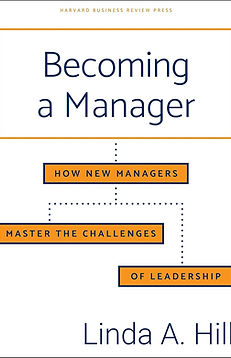
Leadership
Recommended Books
In this Leadership section of our "Recommended Books," we dive into the essential reads that shape today’s corporate leadership landscape. These books offer practical wisdom and transformative insights into what it takes to lead teams, drive innovation, and set the standard for senior executive leadership. Curated specifically for leaders, this collection empowers you with the tools to elevate your approach and inspire excellence in every facet of your organization.
The Life Cycle of a CEO
A groundbreaking study of S&P 500 CEOs reveals the CEO Life Cycle—five stages from launch to legacy—each requiring reinvention to overcome challenges. Authors Claudius A. Hildebrand and Robert J. Stark debunk the myth of innate leadership, showing how CEOs build resilience, adaptability, and self-awareness. Essential for CEOs and aspiring leaders, this book offers a roadmap to thrive and achieve lasting success.
Being the Boss
Managing isn’t easy—it’s a journey of trial, error, and personal growth. In Being the Boss by Harvard Business School’s Linda Hill and Kent Lineback, learn to excel as a leader by mastering three key imperatives: manage yourself to lead effectively, manage your network to build influence, and manage your team to foster high performance. With real-life stories and actionable insights, this essential guide empowers both new and seasoned managers to navigate challenges and inspire success.
CEO Excellence
CEO Excellence by McKinsey & Company explores what it takes to thrive in one of the toughest roles in business. Drawing from extensive research and in-depth interviews with 67 elite leaders—including chiefs at Netflix, JPMorgan Chase, GM, and Sony—it reveals the mindsets and strategies that drive exceptional performance. Featuring insights from Jamie Dimon, Mary Barra, and others, this book provides a practical, compelling, and unprecedented guide for anyone aspiring to achieve leadership excellence in today’s complex corporate world.
How to Lead When You're Not in Charge
Are you letting your lack of authority paralyze you?
One of the greatest myths of leadership is that you must be in charge in order to lead. Great leaders don't buy it. Great leaders lead with or without the authority and learn to unleash their influence wherever they are.
With practical wisdom and humor, Clay Scroggins will help you nurture your vision and cultivate influence, even when you lack authority in your organization. And he will free you to become the great leader you want to be so you can make a difference right where you are. Even when you're not in charge.
Becoming a Manager
Becoming a Manager by Harvard professor Linda Hill is an essential guide to navigating the critical shift from individual contributor to effective leader. Based on insights from 19 first-year managers, it reveals the challenges of earning trust, motivating teams, and balancing delegation with control. Hill highlights the psychological transformation and continuous learning required for success. Packed with leadership wisdom, this timeless book is a go-to resource for managers at any career stage, empowering them to lead with confidence and adaptability.





